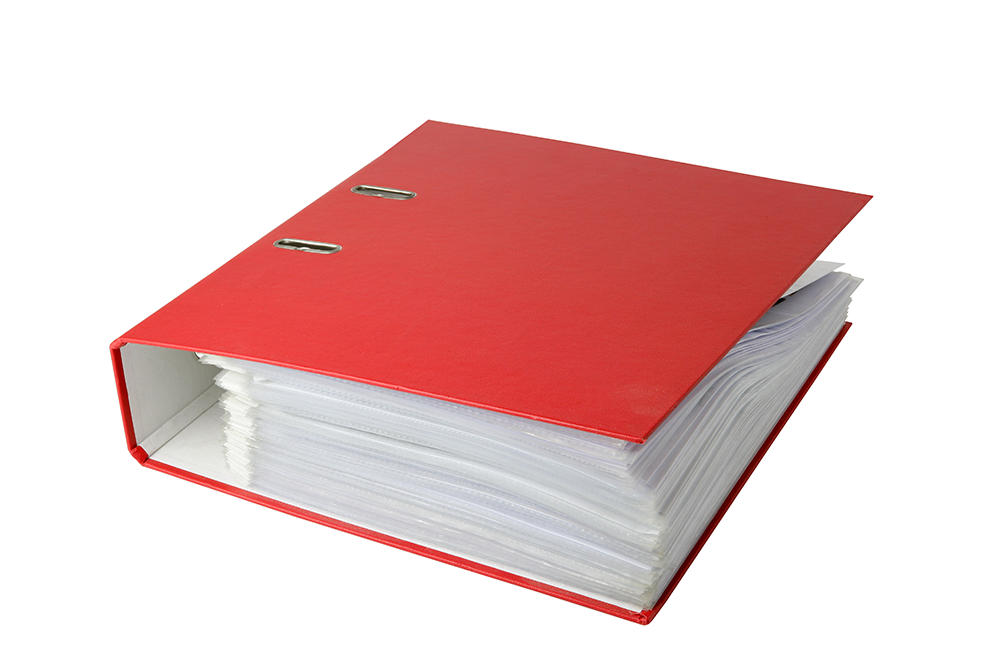You’ve selected the courses, ordered the textbooks, and neatened the supply stash. All that stands in between you and the first day of the school year is a master plan for you to follow. Or course you could purchase any of the cute and premade planners or binder fillers online, but there is a third option, my friend. One way to get yourself and the kids fully organized is to create a personalized teacher binder.
Teacher binders are made up of any number of lists, charts, and schedules you feel necessary to run your homeschool (and perhaps your home) successfully. Here is a quick list of what many parents include in their binders:
- Master Calendar: A full page, at-a-glance-view of the whole school year and a set of monthly calendars, one month per two-page spread. These two combinations of calendars allow you to plan far ahead and get a grand scheme of what your year will look like. These can be printed off of the internet or simply disassemble a wall calendar and punch holes to fit our binder. You will be able to count the weeks of your semesters and school year in addition to noting any big events, appointments, testing, etc.
- Weekly Calendar: Now, teachers far and wide have their own opinions about the layout or approach to a weekly calendar. In the most basic format, a weekly calendar includes the activities or schedule that take place every week such as lessons, therapy appointments, repetitive classes, community group meetings like scouts or church groups, and a basic run down of the day (such as sleeping and schooling hours, chore time, outside time, etc.)
- Weekly Course Planner: This could be the same as the weekly calendar previously mentioned, but some home educators prefer to have their course planning on a separate calendar. This would list your school week and all the courses needing to be taught during the week. Some teachers are very detailed in their planning pages (so much so that if someone unfamiliar to how you run your day were to pick it up, they could execute your planned day), while others are more barebones in their planning. It seems that the veteran teachers need to plan less and less as they familiarize themselves with how homeschool courses or textbooks are designed.
- Budget Tracker: Rather self-explanatory, but this is a helpful section for those working diligently to stick to a budget. Homeschooling can get super pricey (but can certainly be done for less). Keeping a “to buy list” and a “projected cost list” can keep you better in check. Make sure you add things such as private lessons, school supplies, online courses and any special purchase you need for those courses.
- Grade Book: If your keeping grades, this is the place to keep those all in one place. You can also organize pre-, mid-, and post- year assessments for the young learners in your home. Also, for older kids that will need high school transcripts, this is essential for keeping track of courses taken.
- Contacts: This is a great section to keep track of all of the private lesson teachers, sports coaches and gyms, co-op directors, and other important homeschool contact information. Trust me, the moment you need to find a phone number will be the exact time your cell battery dies. Been there, done that.
- State Standards: If you live in a state which requires you to teach certain standards each year, or perhaps you want to use a checklist of generalized standards for your year, this is a good place to keep a copy nearby. You can highlight or check them off as you go. You’ll quickly see what else needs to be taught.
If you want to get crazy with your binder, some addition sections to include are:
- Meal plan and master grocery list
- Exercise and health goals tracker
- Fun quotes from the kids during the year and other memorable things
- Multi-year plan at a glance
- Chore chart
- Additional resources such as helpful websites, online school which offer a la carte courses
If you are a teacher binder user, what do you include in yours? What has been the most helpful?
Since 2004, Global Student Network has been a leader in providing innovative online curriculum to homeschooling families and partnering schools throughout the world. GSN offers a wide range of online curriculum options. We have over 2000 course offerings including Honors, AP®, World Languages, and Career and Technical Education courses. Our program has been used by homeschool families as well as public, private, and charter schools, both nationally and internationally. Learn more about or try a demo of GSN’s curriculum here: https://globalstudentnetwork.com/curriculum
Lindsay Banton is a caffeinated mother to three great kids. She never expected to homeschool, but has found that it is a wonderful addition to their lifestyle and wouldn’t change it for the world. In addition to homeschooling, Lindsay works alongside her husband in campus ministry at a large university in Connecticut. She grew up in Virginia but has settled into life in New England, learning to love the long winters, cool springs, green summers and gorgeous autumns- and has built a boot collection to meet all the demands. She is currently blogging at www.lindsaybanton.com.

